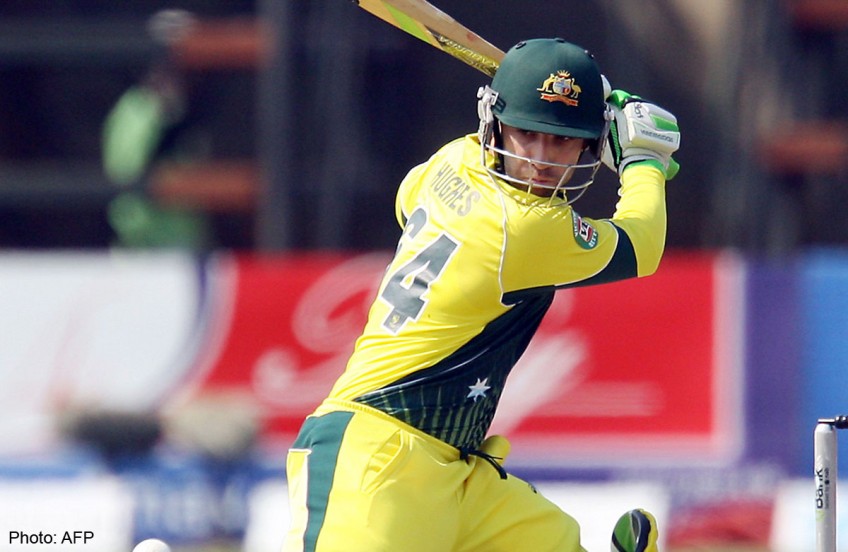A risk we take for granted


The shattering, heart-rending injury to Australian cricketer Phil Hughes reminds us of the fragility of our existence. And it reminds us of the extraordinary skill and bravery in a sport where putting bat to ball is taken for granted.
It tells us how hard a cricket ball really is, how fast it is propelled and that the human body, for all its magnificent construction, is really so vulnerable.
We often thank god for helmets, but Hughes was wearing one and the ball still found an unprotected area. How much do we cover?
And so we realise the kind of skill batsmen of the past had, for when subjected to bowling as terrifying as today's (or indeed even more so), they used their bat to defend not just their wickets.
It is not even a 22 yard game, just about 19 yards really; and when the draggers were in full swing, they reduced the distance between bowler and batsman even more.
Does it, like everything else in life, come down to luck? It is a widely-abused term in sport, and indeed in life, for it is often the nail on which we hang our inability.
It is our refuge, our shelter and we use it to console, even fool ourselves when in reality we weren't good enough. But on a day like this?
Phil Hughes had missed a cricket ball before. Many times. He had pulled and pulled well but he had missed too.
He had played fast bowling and I am sure he must have misjudged it several times. Like every batsman who has played the game.
There isn't a batsman who hasn't had his heart in his mouth in that terrifying instant when the ball is upon him and he isn't ready with a shot in response. It had to be luck.
We have all seen fear and come face to face with, if you are lucky, what might have been. One late evening I did.
We didn't have pitches when we were kids and we didn't have protective gear, not even abdomen guards. One evening, when we were barely visible to each other, we talked ourselves into one more over.
We were playing with a cork ball and it can be very hard. We didn't even bowl off 22 yards, just counted the steps and plonked a stone there. And no-balls were very common and very big.
The bowler was quick, for a kid he certainly was. I lost sight of the ball the moment it left his hand and next saw it on its way up to me.
Young instincts and a light bat meant I could swat at it just in time and a top edge carried it far away. It could have hit me between my eyes.
One of my school teammates wasn't as lucky. We had a fast bowler who bent his arm when he wasn't happy.
And he wasn't happy with our opener who taunted him by saying he didn't need an abdomen guard against him. Adolescent bravado met angry elbow.
The result wasn't pretty. Of course the ball went where the guard should have been. He never played again and, with every passing day, became a wreck.
Of course it was stupidity and cruelty, but wasn't it luck?
Sometimes it takes one incident to make you question everything you took for granted. Even your eyes, your reflexes, your instincts.
There must be many players in the world thinking: Could it have been me? Or worse, could it still be me? Will they back their instincts to swat a ball, or even to sway away from it, as it rears menacingly at them?
Will they be thinking of survival or domination? Will they be focusing on their helmet or their bat? Or will time dull the fear and revive the urge for combat?
It is under this shadow that the India-Australia series will now be played. There will be fear but also the awareness that there is a larger purpose to life than sport.
Our sport, which has fed us with stories of bravery and valour, of courage and determination, has come face to face with the most terrifying question of all: life or death?
tabla@sph.com.sg

Get a copy of tabla! for more stories.